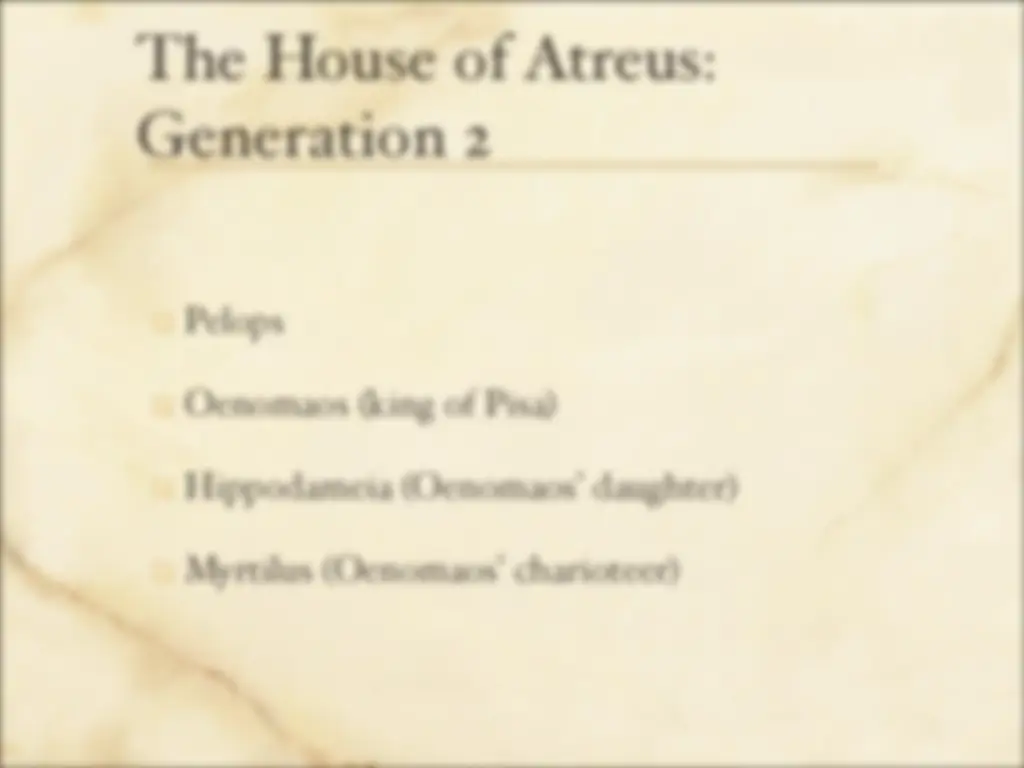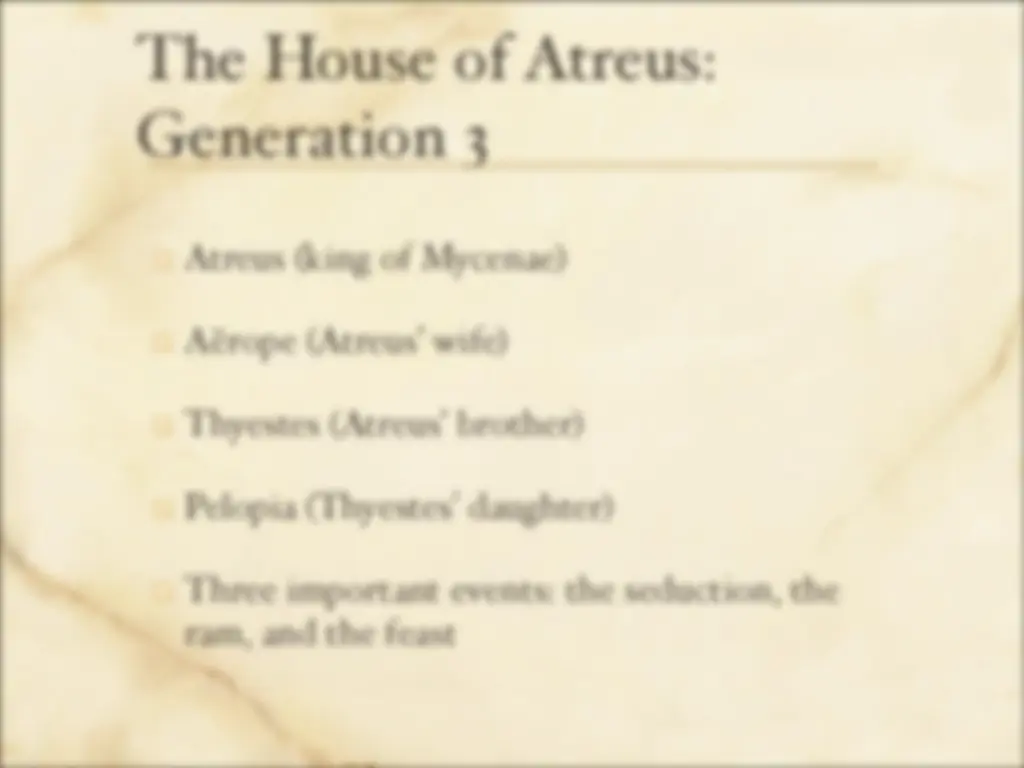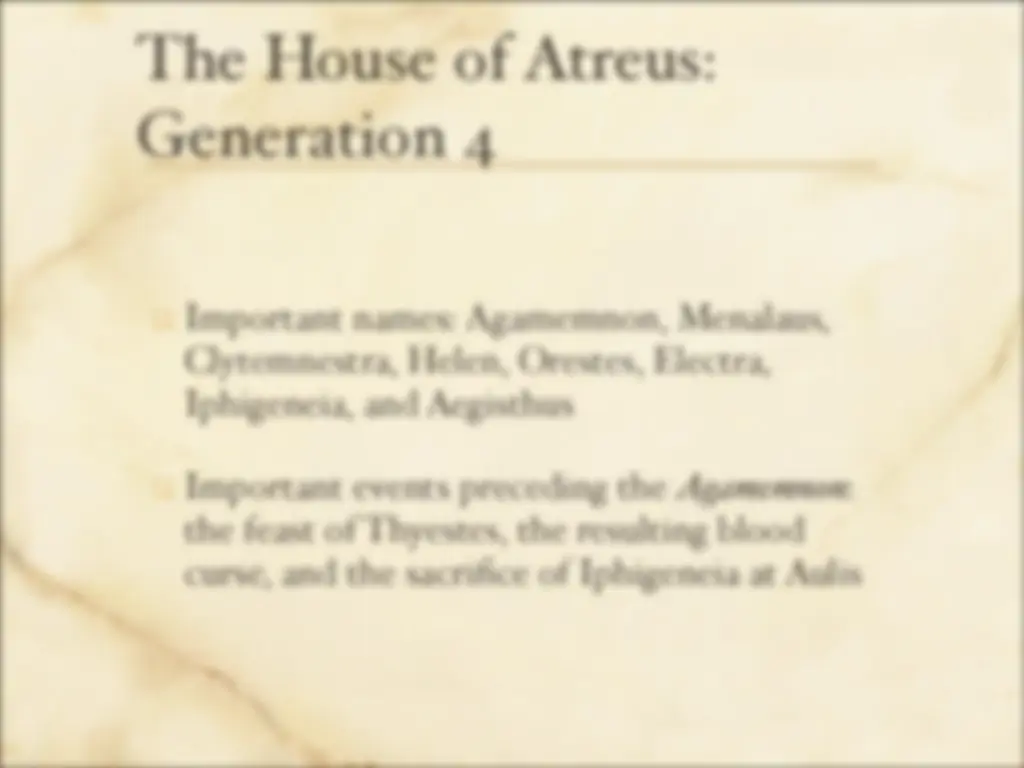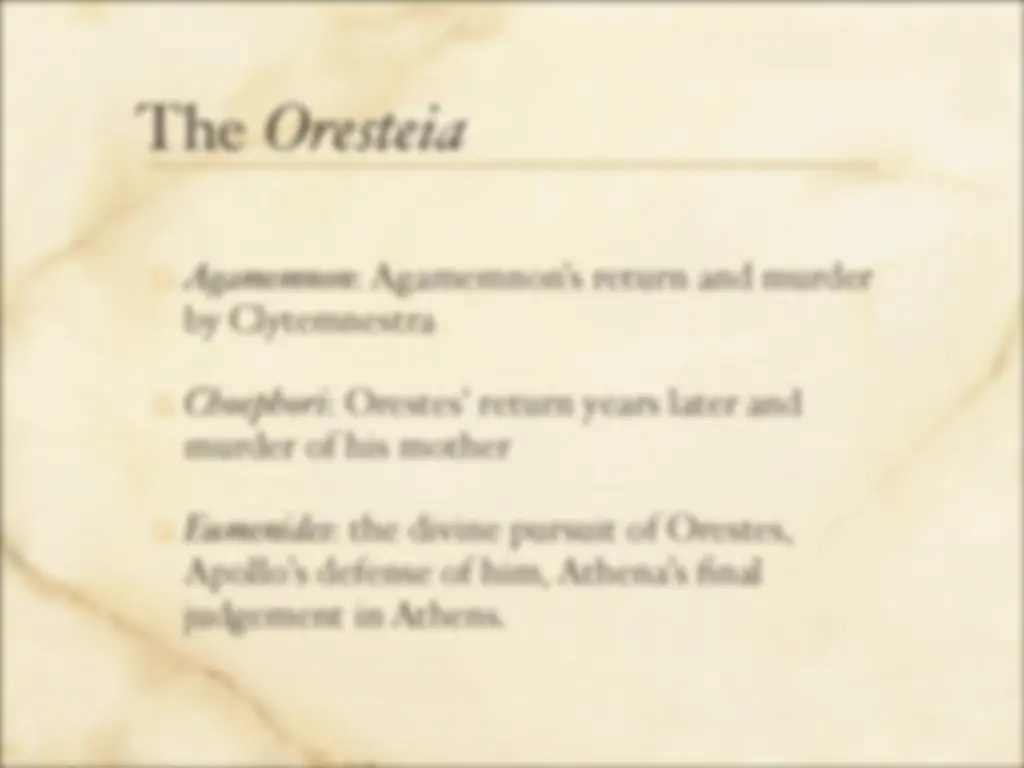






Study with the several resources on Docsity

Earn points by helping other students or get them with a premium plan


Prepare for your exams
Study with the several resources on Docsity

Earn points to download
Earn points by helping other students or get them with a premium plan
Community
Ask the community for help and clear up your study doubts
Discover the best universities in your country according to Docsity users
Free resources
Download our free guides on studying techniques, anxiety management strategies, and thesis advice from Docsity tutors
An overview of the house of atreus, a prominent greek mythological family marked by tragic events. Various generations, key members, and significant incidents, including the seduction of hippodameia, the ram of pelops, the feast of thyestes, and the murder of agamemnon. It also highlights differences between various versions of the myth, such as the agamemnon in the odyssey and the oresteia trilogy.
Typology: Study notes
1 / 8

This page cannot be seen from the preview
Don't miss anything!





The House of Atreus Agamemnon in the Odyssey Agamemnon in Aeschylus
Tantalus Pelops, his son The feast of the gods Tantalus’ punishment ( Od. 11.582– 593 )
Atreus (king of Mycenae) Aërope (Atreus’ wife) Thyestes (Atreus’ brother) Pelopia (Thyestes’ daughter) Three important events: the seduction, the ram, and the feast
Important names: Agamemnon, Menalaus, Clytemnestra, Helen, Orestes, Electra, Iphigeneia, and Aegisthus Important events preceding the Agamemnon : the feast of Thyestes, the resulting blood curse, and the sacrifice of Iphigeneia at Aulis
Aegisthus and 20 hired men kill Agamemnon (book 4); Clytemnestra also responsible (books 11 and 24). The murder occurs in Aegisthus’ house. The lookout was Aegisthus’ man. No mention of Clytemnestra’s motives, of her murdering Agamemnon herself, or of Orestes killing her in revenge.
Agamemnon : Agamemnon’s return and murder by Clytemnestra Choephori : Orestes’ return years later and murder of his mother Eumenides : the divine pursuit of Orestes, Apollo’s defense of him, Athena’s final judgement in Athens.